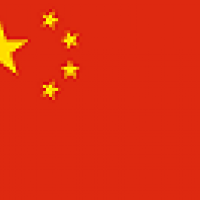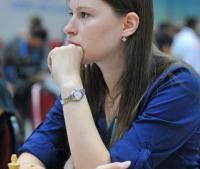
Chess Super Powers: China
In August the traditional Russia-China match took place. It is held every year, usually shifting the venue from Russia to China and vice versa. The 2010 edition happened to be the 7th one. For Russia this friendly chess match is a nice opportunity to put some Russian team candidates to the test (and send a few A-team players too as well). China tries to allocate all the available top players as it is very hard to oppose the Russians.
A bit of history. In the 90s the Chinese female players emerged on the world chess scene. Xie Jun became the Women's World Champion (later followed by Zhu Chen, Xu Yuhua and runner-up Hou Yifan), while the Chinese team started winning Olympic medals. The Chinese government pays serious attention to sports (just like the USSR did), including chess. This resulted in the Chinese women's team winning 4 (!) Chess Olympiads in a row (1998-2004). The Chinese players could boast a great nervous system, excellent tactical vision and somewhat unusual playing style. One couldn't see many of them in open tournaments (even now China has only 138 active FIDE-rated players and 398 FIDE-rated players overall), so, due to their successes at different championships, the Chinese have formed a brand of mystery and invincibility around themselves. The Chinese men's team, however, wasn't anything special at that time.
At the next stage the Chinese female players started competing in international events and boosting their strength even further. Meanwhile, their competitors somehow got used to them and their chess playing style. People began treating the Chinese team just like any other top players. As a result, in 2006 Ukraine took gold in the women's section and in 2008 - Georgia. Anyway, the Chinese women's team (rated second, only behind Russia) is still considered to be one of the strongest in the world and one of the favorites to win gold at the 2010 Olympiad in Khanty-Mansyisk. For example, the recently established World Team Championship has been won by China twice.
As to the Chinese men's team (China is #4 in the world by average rating of top-10 players), it is progressing rapidly. More and more of their masters are entering the world top-100 (Wang Hao - #21, Wang Yue - #28, Bu Xiangzhi - #58, Zhou Jianchao - #67, Ni Hua - #93) , and the chess team will be a considerable force at the Olympiad.
The aforementioned dynamics can be traced by following the Russia-China matches. Earlier the Russian women's team used to be a weak link, but in 2008 and 2010 we won the standard chess matches. The men's team, on the contrary, started losing more often than before.
This year's match in China was won by the Chinese (if you take combined scores of men and women, it was 128 to 122). Unlike in the past, this year I didn't do well, and got only 2/5 in the standard part and 10/20 in rapid.

The Chinese women's team (left to right): Ju Wenjun, Ding Yixin, Tan Zhongyi,
Wang Yu, Huang Qian

The Russian women's team (left to right): Anastasia Bodnaruk, Nadezhda Kosintseva, Alina Kashlinskaya, Valentina Gunina, Natalia Pogonina (in front)
Here's a game from round 1 of the event:
I overestimated my position, made a mistake and ended up facing some problems. After I started to play defensively, my opponent tried to exchange all the pieces (instead of building up pressure), so the game quickly ended in a draw.

